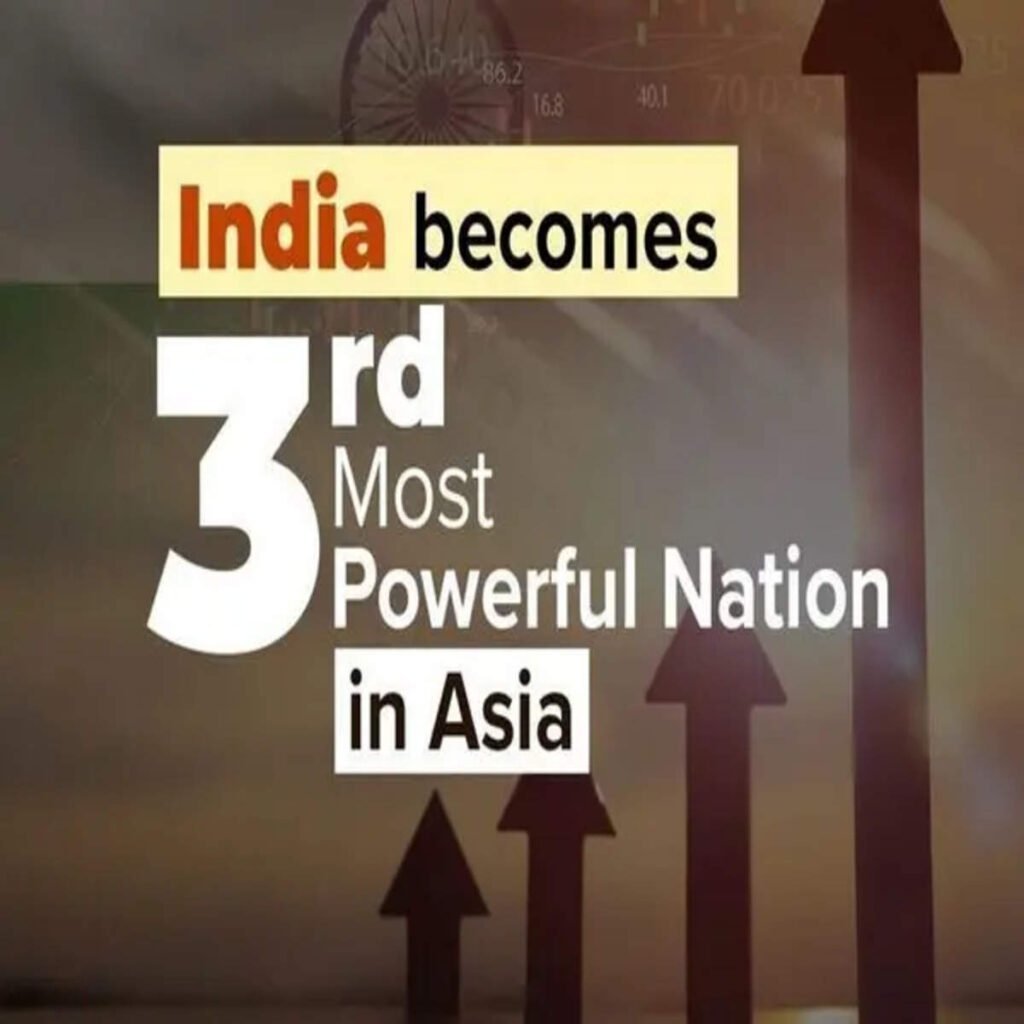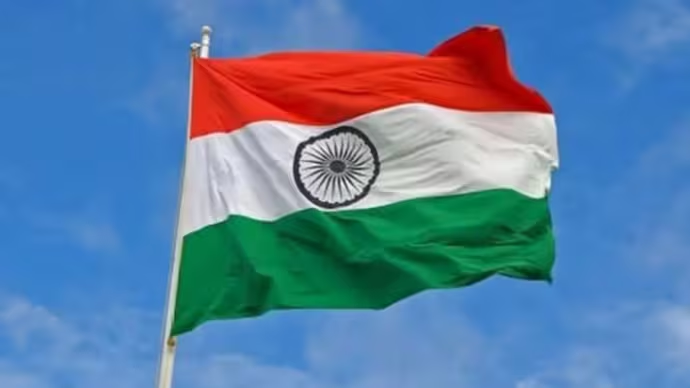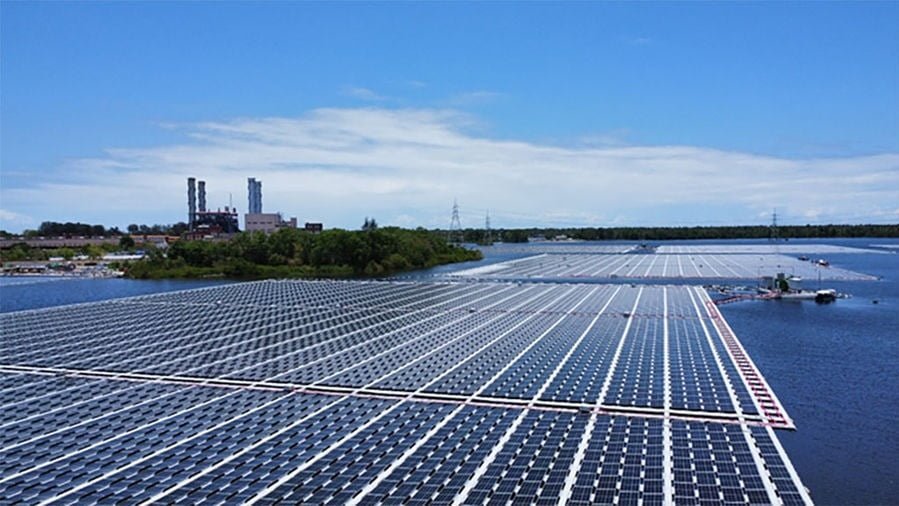| In Short |
| India has surpassed Japan to become the third-largest power in the Asia Power Index |
| The index measures power based on economic strength, military capability, diplomatic influence, and more. |
| India’s rapid economic growth, military modernization, and diplomatic efforts contributed to its rise. |
| Japan’s stagnant economy and limited military expansion allowed India to overtake it in the rankings. |
| India’s ascent marks a significant milestone in its journey toward becoming a global superpower. |
That India has climbed to the third position from Japan in the Asia Power Index released recently is a turning of events that would be a moment to really look very closely at India’s growth and the increase in its influence in the region, which translates to becoming a major player on the Asian stage.

The Asia Power Index is the yearly rating of the relative power of Asian countries. It measures other factors such as the economic strength, military capabilities, and diplomatic and cultural impact of a country. The rise to third position for India is a testament to India’s rising capabilities and ambitions in the region.
Knowing the Asia Power Index
Asia Power Index is a measure of power dynamics developed by the Lowy Institute for 26 countries in the Asia-Pacific region. It evaluates the nations across the key indicators of eight fields:

- Economic capability
- Military capability
- Resilience
- Future resources
- Diplomatic influence
- Cultural influence
- Economic relationships
- Defense networks
Each one of these factors is important enough in determining a country’s standing and influence in the region. India’s move to a better position in the Asia Power Index for 2024 indicates growing power in many aspects, including the economy, military, and diplomatic influence.
How India Ousted Japan
India has moved from behind Japan to take the third position in the Asia Power Index. It happens because of some factors that have been briefly described as follows:
Economic Growth and Stability
- India has shown considerable economic resilience, especially since the COVID-19 pandemic. India is one of the world’s fastest-growing major economies, and its GDP has only been expanding, which fuels its growing prowess in the region.
- Economic diversification into the results of the economy in India is defined by a few very strong sectors in the areas of information technology, pharmaceuticals, and manufacturing, which have played the most important roles in their attaining a better ranking economically.
Military Capability:
India has upgraded its military capacity, which is now ranked as the fourth largest armed forces across the globe.
- Increases in India’s military modernization and defence spending have heightened its military power and now ranks as one of the world’s largest military forces. Sustained investment is being made in strengthening defense infrastructure development and in modernizing their armed forces into more advanced technological standards through the purchasing of advanced weaponry, along with strategic capacity building.
- The increasing military power of India, accompanied by rising defense partnerships and relations between the country and other nations, has also driven its rapid ascension in the Asia Power Index.
Diplomatic and Cultural Influence
- India has become an active competitor in Asia and beyond, which ensures that India is building on new diplomatic relationships and ties. The kind of programs such as Act East Policy have made it easier for India to increase political influence across the entire Southeast Asia and the broader Indo-Pacific.
- Cultural influence through heritage richness, Bollywood, cuisine, and yoga, thus increasing soft power, making India a more significant player globally.
Comparison with Japan: Why Did India Overtake?
Japan has long been regarded as the most powerful and influential in Asia, but recent events have witnessed India take over at the top spot of the Asia Power Index rankings. Several factors have led to the shift.
- Unchanging Economic Growth: Japan’s economy recently has faced the challenge of less growth along with an aging population attacking its ability to function. On the other hand, India’s economy has proved tenacious and has been growing rapidly, pushing Japan further down in this category.
- Military Development: Japan has a highly modern military, but constitutionally, its development has historically remained limited. India, however, has actively and aggressively pursued military modernization and expansion of its defence capabilities that explains why the country is increasingly considered strong.
- Diplomatic Engagements: India’s active engagement with other countries in the Indo-Pacific region and participation in forums such as the Quadrilateral Security Dialogue (Quad) has added to its diplomatic influence, allowing it to take the third spot at the expense of Japan.
India rise to the third place in Asia Power Index: Implications for India and the Region
There are a few implications of India rising to the third place in the Asia Power Index for both the country and the wider region:
1. Strengthening of Regional Influence of India
•Further enhanced India’s ranking and makes it an important power player in Asia, meaning India can be far more demanding in determining the geopolitical, economic, and security milieu of the region.
•This will also enhance India’s leverage to make proper demands and do strategic collaborations with other countries.
2. Increased Global Position
•Now, India is ranked as the third-largest power in Asia and further adds glory to India at the global level, hence raising it to the status of an emerging superpower. It increased the credibility of India to participate in major global platforms such as G20, BRICS, and the United Nations.
3. Opportunities and Challenges Ahead
• A new light of celebration, India has become, but with it comes the rising challenges. The country will have to continue further investments in its economy, military, and in diplomatic efforts as a means to sustain rise and meeting the challenge from other regional powers, especially China.
The Road Ahead for India: Hanging in There
To remain the third-largest power in Asia and continue the upward trajectory, India will need to focus on several key areas.
- Economic Reforms: Stay the course on economic reforms, upgradation of infrastructure, and inculcation of innovation as an essential complement to keep India’s growth momentum and competitiveness on track.
- Military Modernization: Continuous modernization of the military and further defense partnerships with allies will be crucial for maintaining Indian strategic capabilities.
- Diplomatic Engagement: Staying put within the circles of the growing strength among countries in the Asia-Pacific region and other regions, taking an active part, and contributing to regional forums and organizations will further shape diplomatic influence in India.
A New Chapter for India in Asia
Indeed, it does for India to rise to the third position in the Asia Power Index to speak for the growing influence of resilience and capabilities within its region. It is no less important that it overtakes Japan than marks a new beginning wherein India must proceed and act to hold this top-of-the-line position as among the leaders in Asia.
With India’s rise as a regional and international player, it would also be interesting to note in how the changing dynamics of power transforms Asia’s trajectory in its relations with other countries in the international order.
For Latest News Updates Click Here
